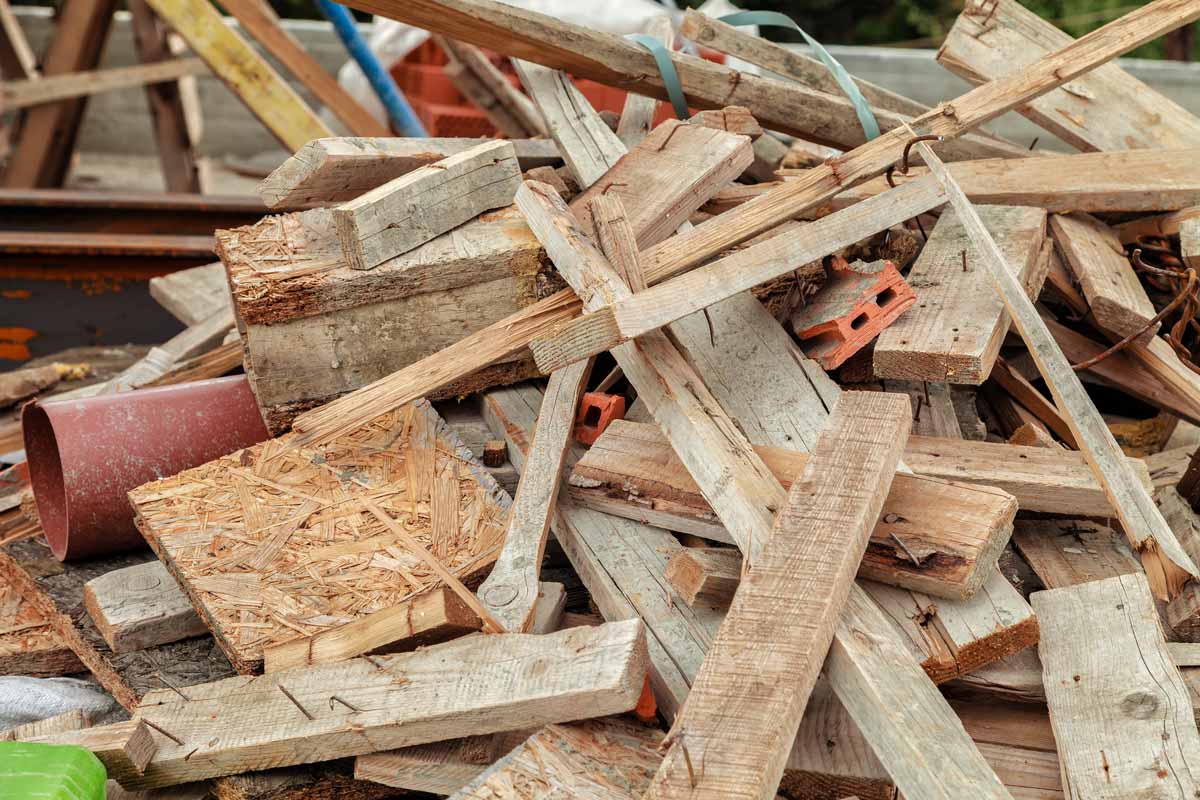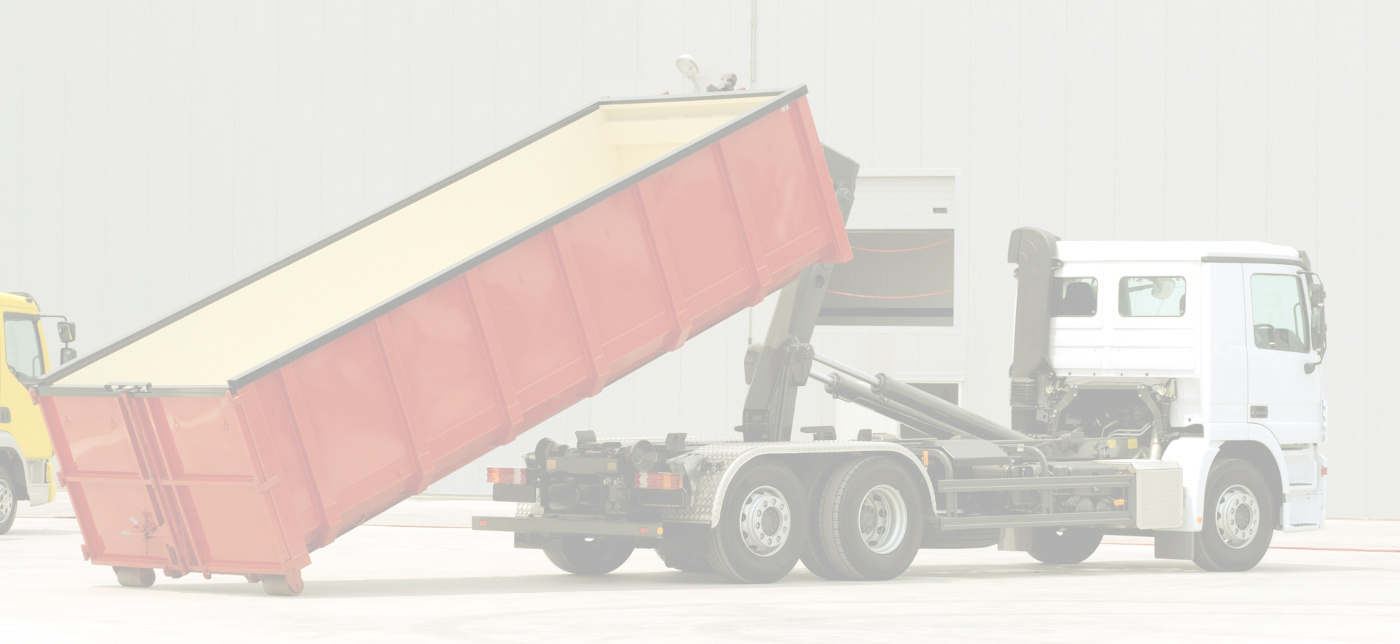Even the smallest renovations will leave you with some amount of construction debris. Treating it all as trash may be tempting, but that can be a costly mistake. Proper disposal and appropriate recycling is key to keeping costs down and ensuring the safety of your renovation site and community.

Plan Your Construction Recycling
Effective recycling and disposal measures should start when you begin your renovation project. Setting up a system early allows you to sort as you go.
Some helpful sorting categories include:
- Trash
- Recyclable materials
- Reusable materials to keep
- Reusable materials to sell or donate
- Hazardous waste (like lead paint, asbestos, chemicals, or appliances that use freon)
Once you know how you’d like to sort your construction debris, designate specific areas or bins for each category. That way, the sorting can happen in real-time rather than trying to do it all at the end.
You may also need to subdivide certain categories. For example, “recyclable materials” should be further broken down based on what kind of debris you have and what can be recycled in your area.
You can consult your local garbage or junk hauling company to learn about recycling options in your area. Your municipal waste management office may also be able to assist.
Materials that can often be recycled include:
- Metal (to be melted down and reused)
- Wood (to be used in other projects or converted into mulch)
- Concrete and asphalt (to be converted into aggregate)
- Drywall (to be converted to new drywall or used in making other materials like cement)
Once you start a targeted disposal process, you might be surprised at how much you can recycle or reuse. In addition to reducing landfill waste, keeping materials for reuse or finding ways to repurpose or resell them are great ways to offset project costs.
Get Your Team On Board
The success of any recycling process depends on how well it’s followed. Everyone involved in your renovation project should know how to sort different materials as they are discarded.
If possible, assign someone to keep track of debris disposal and sorting. If a dedicated person keeps an eye on the different disposal areas, they can identify and correct any mistakes and reinforce the correct sorting process along the way.
Avoid Fines through Responsible Waste Disposal
Improperly disposing of construction waste or hazardous materials can lead to environmental contamination and hefty fines. If you need to dispose of construction debris, know what you’re dealing with and how to discard it safely.
To identify what counts as hazardous waste:
- Reach out to your local garbage or junk hauling team
- Check labels or search online for the item’s Safety Data Sheet (SDS) or Material Safety Data Sheet (MSDS)
- Visit the Environmental Protection Agency (EPA) website
If you generate the waste, you are responsible for disposing of it correctly. If you’re unsure what category your waste falls into, take the time to find out before getting rid of it.
To determine safe disposal measures, you can:
- Consult or hire a garbage hauling company specializing in construction cleaning
- Familiarize yourself with local, state, and federal disposal regulations
- Find out if your community offers hazardous waste collection events
Disposing of dangerous waste products incorrectly can lead to contaminants leaking into your local soil and water supply. Not only is this unsafe, but it’s also illegal. You can face major fines as well as criminal and civil penalties.
If you need assistance with construction recycling, waste disposal, or junk hauling in Westchester County, call D. Barry Rubbish Inc. today. We are your local resource for all your construction disposal needs. From dumpster rental to targeted construction cleaning assistance, we’re here to help. Offering top-notch customer care and prompt, reliable service, D. Barry Rubbish Inc. has you covered.

